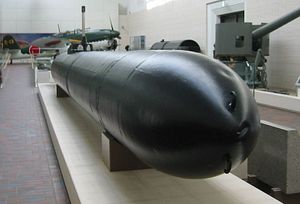In the lead up to the 69th anniversary of end of the Second World War in the Pacific theater on Friday, there is much speculation about which Japanese public figures will visit Tokyo’s Yasukuni Shrine, where almost 2.5 million of the country’s war dead are enshrined, among them 14 Class-A war criminals. The government has already leaked information that Prime Minister Shinzo Abe will likely refrain from visiting this time, in an attempt to soothe ties with China and South Korea and increase the chance of meeting with their leaders. It is especially at times like this that the role of the shrine comes into focus, and how it plays into the country’s image in the region, and its pacifist Constitution.
The anniversary of Japan’s defeat in the Second World War is usually a popular time for the shrine. Aside from the normal visitors who throng there, many public officials make appearances. In the run-up to this year’s anniversary, the administrators of the shrine issued a newsletter highlighting the fact that on May 20 this year, 119 Maritime Self-Defense Force officers in full uniform made a yearly visit to the shrine just before leaving for extended exercises. While the Defense Ministry said the officers were there of their own accord, and only for “educational purposes,” the fact that this visit is a routine occurrence done in uniform before regular military drills commence is viewed by some as a contradiction of Article 20 of the Constitution, which states “the state and its organs shall refrain from religious education or any other religious activity.”
The shrine offers a unique perspective on the country and culture. Situated in the center of Tokyo, its museum is one of the few large public installations in the capital that offers no foreign language signage or explanations in its lobby, a curiosity in a city now intent on making itself more foreign friendly as it prepares for the 2020 Olympics. It is a place intended for Japanese people that is largely unapologetic about Japan’s wartime past. According to its website, all those interred there, “regardless of their rank or social standing, are considered to be completely equal and worshipped as venerable divinities of Yasukuni.”
It is that veneration which produces such an immediate backlash and outcry from Japan’s neighbors. Countries like China, Taiwan, South Korea and the Philippines see visits to Yasukuni by politicians and defense officials as not only an overt display of nationalism, but as publicly condoning Japan’s past crimes of war. The fact that these politicians and officials make regular visits on historic or ceremonial occasions is also problematic for Japan’s image in the region. Japan’s neighbors are very sensitive to any perceived erosion of the separation between government and its ties to Japan’s more nationalistic forms of spirituality. Especially when the previous wartime government made strong claims to the divinity of the Emperor, and the military’s duty to uphold Japan’s honor, often at the expense of other countries.

































